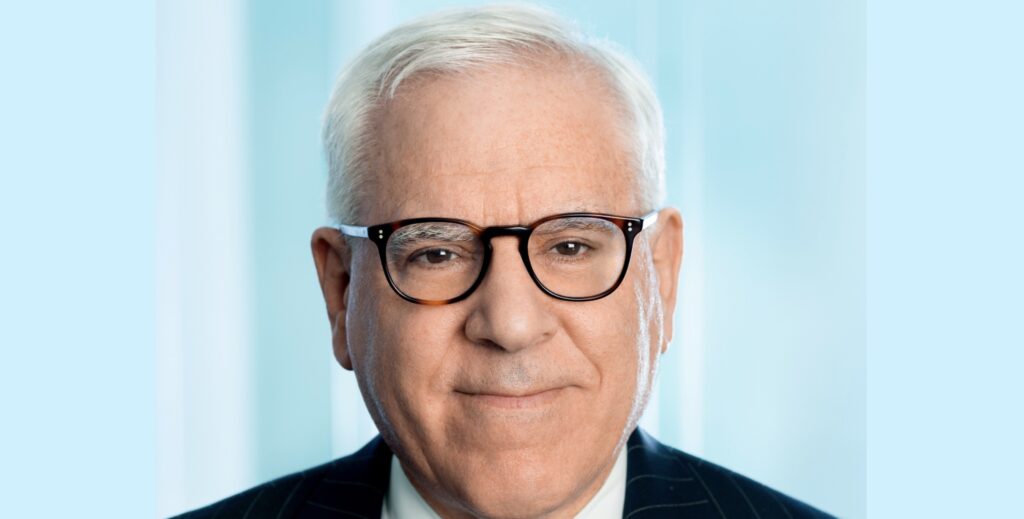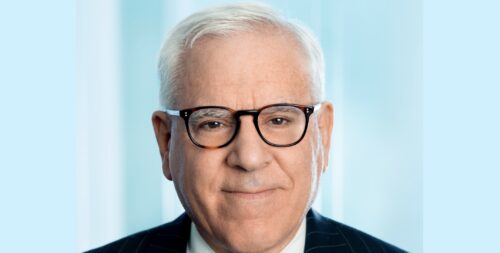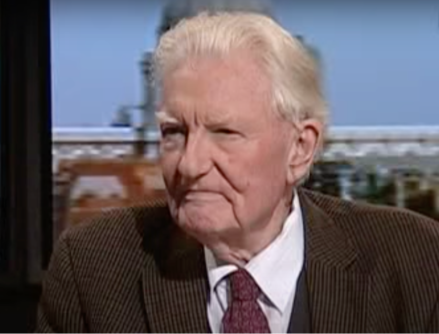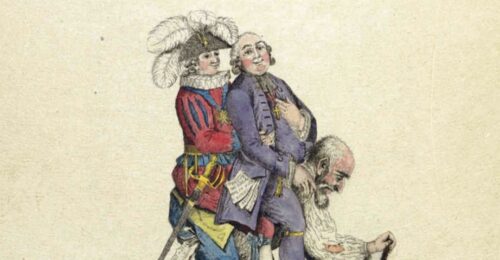The Carlyle Group co-founder and co-chairman talks to Daniel P. Schmidt and Michael E. Hartmann about what he calls “patriotic philanthropy.”
In 1987, David M. Rubenstein co-founded the Carlyle Group, a highly successful private investment firm, of which he is also co-chairman. The firm currently manages an estimated hundreds of billions of dollars, from offices around the world. Rubenstein’s reported personal net worth is in the billions, too.
He is a pillar of the country’s financial, philanthropic, and media establishments.
Rubenstein has led funding of the preservation of several of the West’s most-important historical documents and the restoration and maintenance of America’s most-prominent historical monuments and memorials. He serves on the boards of many prestigious nonprofit institutions, as well.
He’s written or edited books—and has been and is an engagingly informed and inquisitive host of programs on Bloomberg Television—about wealth generation, leadership, and history.
On April 26, Iconic America: Our Symbols and Stories with David Rubenstein will premiere on PBS. The eight-episode documentary series closely examines the history and meaning of iconic national symbols—artifacts, places, and archetypes—from across the U.S., including Fenway Park, the Hollywood sign, the Gadsden flag, and the American cowboy, among others.
Rubenstein was kind enough to join us for a recorded conversation last month. The eight-minute video below is the first of two parts of our discussion; the second is here. In the first part, we talk about what he calls “patriotic philanthropy.”
“I guess in many respects, you could say all philanthropy is patriotic because you’re trying to give back to the country,” Rubenstein tell us. He coined the term “patriotic philanthropy,” he continues,
to try to describe some of the type of philanthropy I’ve been doing, and that is to remind people of the history and heritage of our country. My theory has been that people should know more about our history and heritage. Our representative democracy is premised on an informed citizenry and if we don’t have informed citizens—if people don’t know how our government works, know about our history—we’re not going to have as good a democracy as we should like.
Asked about what could be perceived—perhaps especially in the wake of America’s turbulent 2020—as tension between a “patriotic philanthropy” like his that restores and preserves certain of the country’s monuments and memorials on the one hand and what progressive establishment philanthropy might otherwise prioritize on the other, Rubenstein acknowledges “that some monuments and memorials have been criticized because they promote people who were either fighting for the Confederacy or were proponents of slavery” and says,
Let’s use that as a simple standard: Thomas Jefferson, slave owner; George Washington, slave owner; James Madison, slave owner. So, why promote these people? Well, I think you can make a distinction between a Washington Monument—which is designed to memorialize our first president, the general who won the Revolutionary War, the man who presided over the Constitutional Convention—as opposed to a monument designed to promote him for his slavery.
In the conversation’s second part, Rubenstein talks about the upcoming Iconic America series.






